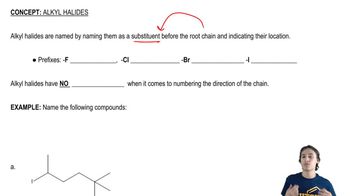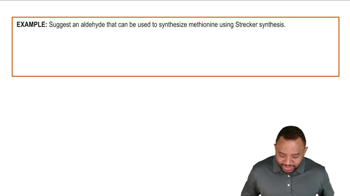Show how you would synthesize following tertiary alcohol by adding an appropriate Grignard reagent to a ketone.
b. Ph3COH
 Verified step by step guidance
Verified step by step guidance Verified video answer for a similar problem:
Verified video answer for a similar problem:



 13:4m
13:4mMaster Reactions of Organometallics with a bite sized video explanation from Johnny
Start learning